Business
Boeing and Google each give $1m for Trump inauguration
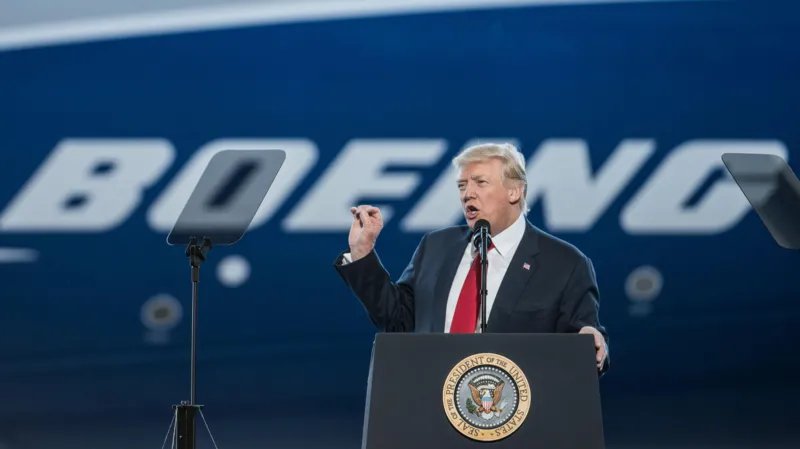
US aviation giant Boeing has told BBC News it is donating $1m (£812,600) to an inauguration fund for President-elect Donald Trump.
Google has also confirmed that it has made a similar donation as the two firms join a growing list of major American companies contributing to the fund.
The list also includes oil producer Chevron and technology giants Meta, Amazon and Uber.
Trump’s inauguration, marking the start of his second term in the White House, is set to take place on 20 January.
“We are pleased to continue Boeing’s bipartisan tradition of supporting US Presidential Inaugural Committees,” Boeing said.
The company added that it has made similar donations to each of the past three presidential inauguration funds.
Boeing is working to recover from a safety and quality control crisis, as well as dealing with the losses from a strike last year.
The company is also building the next presidential aircraft, known as Air Force One. The two jets are expected to come into service as early as next year.
During his first term as president, Trump forced the plane maker to renegotiate its contract, calling the initial deal too expensive.
Google became the latest big tech firm to donate to the fund, following similar announcements by Meta and Amazon. It also said it will stream the event around the world.
“Google is pleased to support the 2025 inauguration, with a livestream on YouTube and a direct link on our homepage,” said Karan Bhatia, Google’s global head of government affairs and public policy.
Car companies Ford, General Motors and Toyota have also donated a $1m each to the inaugural committee.
In the energy industry, Chevron confirmed that it has made a donation to the fund but declined to say how much.
“Chevron has a long tradition of celebrating democracy by supporting the inaugural committees of both parties. We are proud to be doing so again this year,” said Bill Turene, Chevron’s manager of global media relations.
Business
Blow to Reeves as UK borrowing unexpectedly jumps
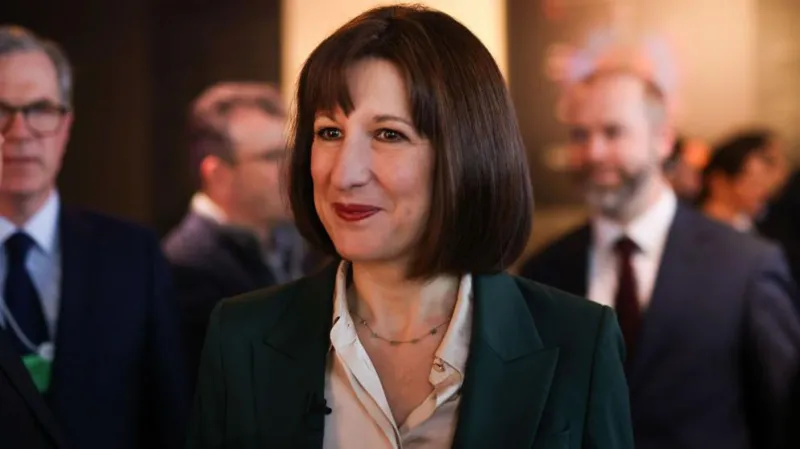
Government borrowing rose more than expected in December to hit its highest level for the month for four years, piling more pressure on the UK’s finances.
Borrowing – the difference between spending and tax revenue – was £17.8bn last month, £10.1bn more than in December 2023, official figures show.
Spending on public services, benefits, and debt interest were all up on the year, while an increase in tax receipts was offset by National Insurance cuts made by the previous government.
Recent spikes in borrowing costs threaten the government’s economic plans, with Chancellor Rachel Reeves facing pressure after figures last week showed the UK economy had flatlined.
The government has said economic growth is its top priority in order to boost living standards, but fears over the health of the UK economy adds to speculation that Reeves could cut spending on public services.
The total £17.8bn borrowed by the government last month was much higher than the £14.6bn forecast by the Office for Budget Responsibility, the UK’s official forecaster.
Interest charged on government debt hit £8.3bn, marking the third-highest December debt interest repayments since monthly records began in 1997.
Earlier this month the interest rates charged on government debt surged in part due to concerns over the UK’s economic outlook, before falling back.
On Wednesday, the interest rate charged on UK government debt over a 10-year period retreated to 4.5%, near to where it was at the start of the year.
During her visit to the World Economic Forum in Davos, Switzerland, Reeves played down the impact the recent market turbulence would have on her meeting her self-imposed borrowing rules, which aim to maintain credibility with financial markets and taxpayers.
The chancellor has made the trip to the event to drum up investment in the UK among the world’s biggest business leaders and financiers.
Business
TikTokers offered $5,000 to join Facebook and Instagram
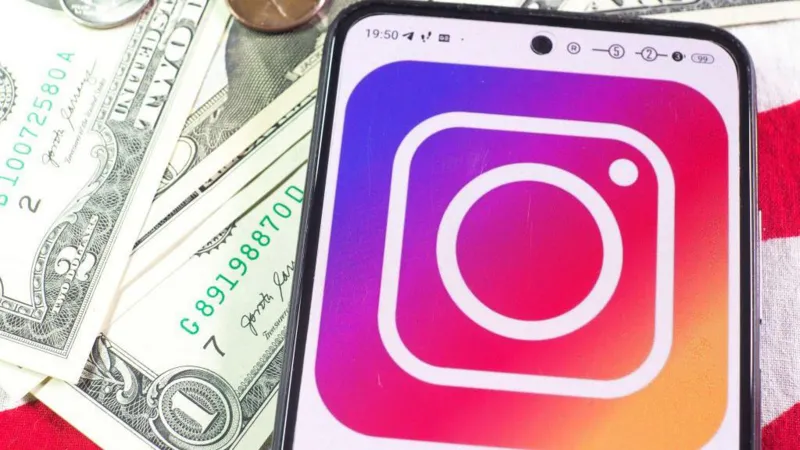
Social media giant Meta has offered to pay up to $5,000 (£4,040) to popular creators in the United States who join Facebook and Instagram.
It says those joining from “third-party social apps” will get cash based on “an evaluation of your social presence”.
Though it does not mention TikTok by name, the timing would suggest Meta is attempting to capitalise on the uncertainty surrounding its rival, as questions swirl about whether President Trump can find a way of preserving it for US users.
TikTok says it has 170 million users in the US – with many of them relying on it for their livelihoods – meaning lots of people would be seeking an alternative place to post if the platform disappeared.
Meta says on its website that those accepted into the so-called “Breakthrough bonus programme” will be paid the money during their first 90 days on the app, so long as they post regularly.
Users must post at least 20 reels on Facebook and 10 reels on Instagram – Meta’s version of vertical TikTok videos – during each 30-day period.
It also dictates that these must be original videos, rather than those previously shared on other platforms.
But not everyone can join – the cash will only be available to those people who are completely new to either Facebook or Instagram.
And the firm will seemingly decide who to accept on a case-by-case basis, as people must apply to be accepted onto the programme.
It is also offering other perks, such as a free subscription to its blue check verification system.
Business
Trump considers 10% tariff on China from February
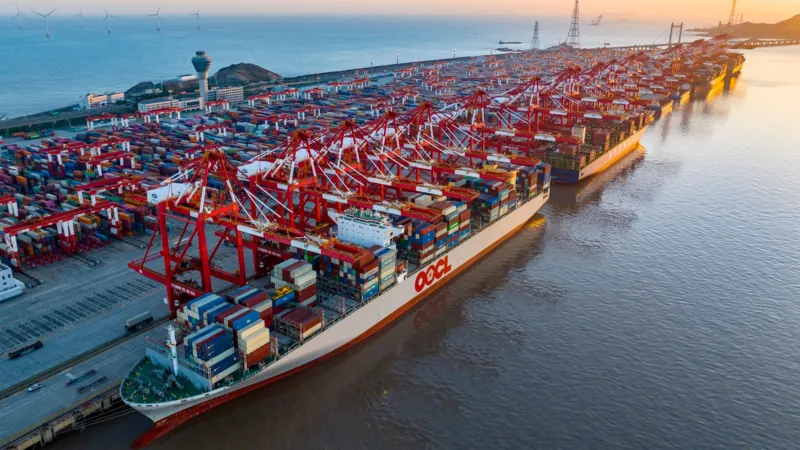
US President Donald Trump has said he is considering imposing a 10% tariff on imports of Chinese-made goods as soon as 1 February.
Trump said discussions with his administration were “based on the fact that they’re sending fentanyl to Mexico and Canada”.
He called China an “abuser”. China responded saying trade wars have “no winners”.
Despite the aggressive talk, the 10% tariff would be much less than the 60% tariff Trump mentioned on the campaign trail.
Trump’s comments followed his threats to levy import taxes of 25% on Mexico and Canada, accusing them of allowing undocumented migrants and drugs to come into the US.
In a press conference in Washington on Tuesday, Trump also vowed to hit the European Union with tariffs.
He said the EU “treat us very, very badly”.
“So they’re going to be in for tariffs. It’s the only way you’re going to get back. It’s the only way you’re going to get fairness.”
China’s foreign ministry spokeswoman Mao Ning responded to Trump’s threats by promising to “safeguard its national interests”.
“We have always believed that trade wars and tariff wars have no winners,” she added.
Shortly after he was sworn in on Monday, the new president also instructed federal agencies to conduct a review of existing trade deals and identify unfair practices by US trading partners.
Meanwhile, a top Chinese official spoke out against protectionism at the World Economic Forum in Davos.
China’s Vice Premier, Ding Xuexiang, called for a “win-win” solution to trade disputes without mentioning the US.
The Canadian Prime Minister Justin Trudeau has promised to fight back.
“If the [US] president does choose to proceed with tariffs, Canada will respond – and everything is on the table,” Trudeau said.
Ottawa is preparing counter-tariffs in response to the threat, reportedly worth billions of dollars.
Canada, China and Mexico are the top US trading partners.
Tariffs are an important part of Trump’s economic plans. The president believes they can boost growth, protect jobs and raise tax revenue.
But many economists say such measures could lead to higher prices for Americans and harm companies hit by foreign retaliation.
-

 Entertainment5 months ago
Entertainment5 months agoEarthquake scientists are learning warning signs of ‘The Big One.’ When should they tell the public?
-

 International5 months ago
International5 months agoTarar accuses Imran Khan of conspiring with Faiz Hameed to destabilise Pakistan
-

 International3 months ago
International3 months agoPTI Announces Not to Boycott New Committees
-

 Business4 months ago
Business4 months agoMajor Corruption Scandal Uncovered at WASA Multan: Rs1.5 Billion Embezzlement Exposed
-

 Business5 months ago
Business5 months agoThe Impact of QR Codes on Traditional Advertising
-

 Business3 months ago
Business3 months agoHigh Court Blocks MDCAT Merit List Amid Controversy Over Exam Error
-

 Business5 months ago
Business5 months agoThe Benefits and Problems of International Trade in the Context of Global Crisis
-
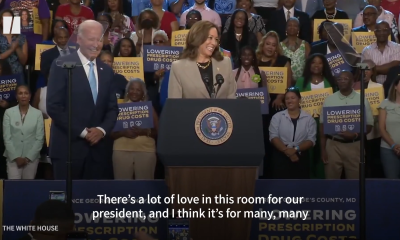
 International5 months ago
International5 months agoGOP Pollster Spots Harris’ ‘Tremendous Advantage’ Over Trump: ‘Does He Want To Lose?’





